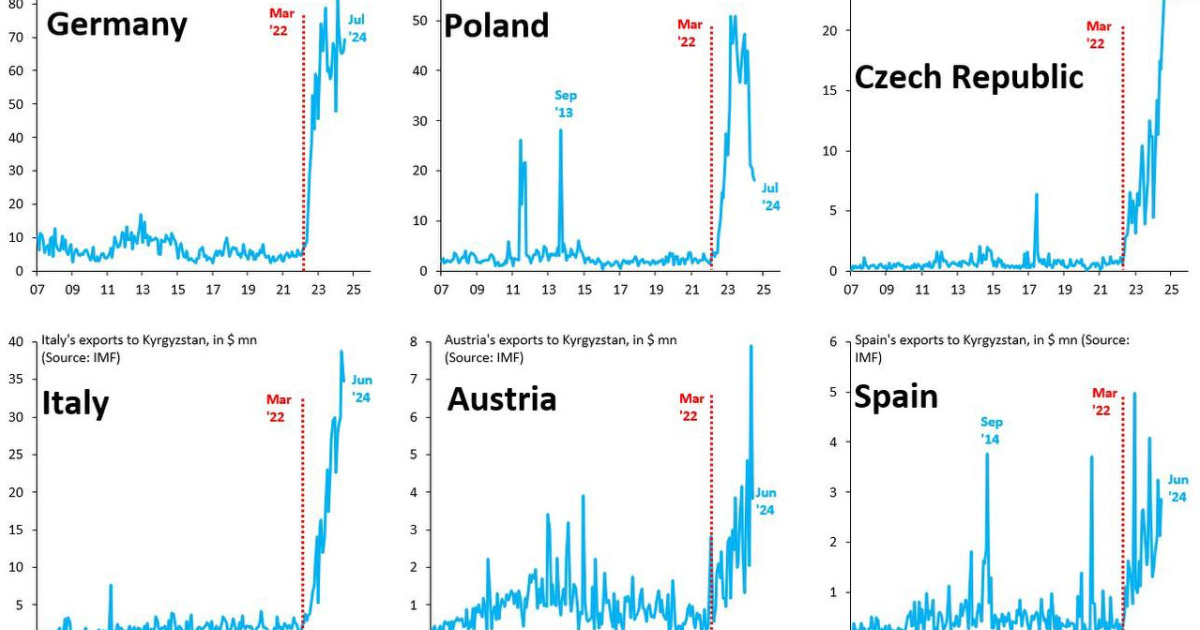
Exports from some EU countries to the South Caucasus and Central Asia have surged by hundreds of percent since 2022, allowing russia to bypass sanctions. This was stated by Mykhailo Podoliak, adviser to the head of the Office of the President of Ukraine, in a Telegram post on October 9.
“It’s clear that countries don’t have abstract friends—only national interests. A striking illustration of this simple maxim is the trade indicators of EU members with the countries of the South Caucasus and Central Asia. Since 2022, European exports in this direction have increased by hundreds of percent. This strange boom is fueled primarily by the Ukrainian tragedy: imports from neighboring countries to russia have risen by the same hundreds of percent. The aggressor bypasses trade sanctions in a primitive and open way, drawing in not only consumer goods but also tools and components for weapon production. This is already a plain truth”, - Podoliak wrote.
He also shared graphs showing the growth of exports to Kyrgyzstan from Germany, Poland, Spain, Italy, Austria, and the Czech Republic.
According to Podoliak, russia’s economic gains are compounded by political ones.
“Through large parallel imports of sanctioned goods, the kremlin is building a buffer zone of satellites around itself, firmly linked by highly profitable trade, and therefore directly interested in the ‘non-end of the war against Ukraine’. Sheep are playing on the wolf’s team. Countries that are highly likely to become the next victims of russia’s territorial ambitions tomorrow are today helping the empire withstand external pressure. It’s interesting to see how European countries, which claim to be value-aligned with Ukraine, view their national interests while often increasing exports to russia through intermediaries", - Podoliak noted.
"The trade sanctions, introduced against the aggressor after the start of the large-scale war, are called unprecedented. Unfortunately, equally unprecedented are the efforts of businesses—often with government support in many countries—to turn these sanctions into an empty formality. So, what’s the point of this ‘game’?", - Podoliak asked rhetorically.





